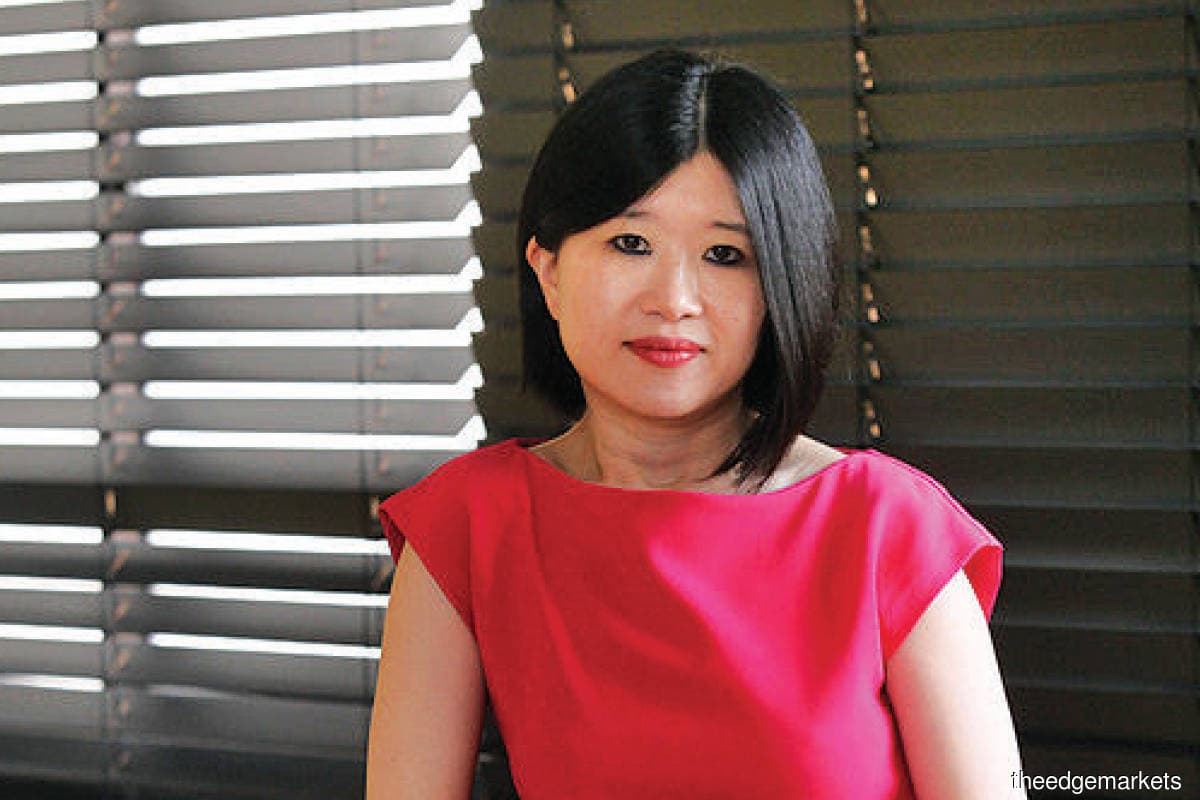
This article first appeared in Digital Edge, The Edge Malaysia Weekly on September 27, 2021 - October 3, 2021
Joanne Kua, CEO of KSK Group and managing director of KSK Land, has spent a lot of time thinking about how she can use data to hack the property development industry.
She was interested in smart buildings and, coming from a company with roots in the insurance business, she knew the importance of data.
“I’m very interested in using technology to make data-driven decisions. Sometimes, this kind of data is not easily available in the property industry. Or if it is, it is typically used in a very traditional way and nobody really looks at it from a different perspective,” says Kua.
KSK Group was established in 1991 with a vision of becoming the country’s largest general insurer. In 2017, it launched insurtech start-up Sunday, which uses data models to offer insurance products, in Thailand. The company ventured into property development through KSK Land in 2013.
“If I can build artificial intelligence (AI) pricing models for insurance, why can’t I do that for property?”
This question led her to establish KSK City Labs in August, which is the tech and data arm for KSK Land. The company also announced that it would be the first in Malaysia to use Delve, a software that employs AI and generative design to help developers build neighbourhoods faster with less risk.
Delve is developed by Sidewalk Labs, a New York-based urban innovation company and subsidiary of Alphabet Inc.
The focus on data and technology keeps KSK Land aligned with the property technology (proptech) trend, where technology is used to disrupt the process of buying, selling, renting, managing and constructing buildings and planning developments.
One of Kua’s key objectives is to provide more personalised services. The plan is to take customers’ preferences into consideration from the design stage, and for each unit to be priced according to its unique features.
“Everyone who walks through the door comes from different walks of life and, yet, we are treating them [the same] by pushing similar products and developments. But this doesn’t work in today’s world,” says Kua.
KSK City Labs’ data scientists are currently developing an AI pricing engine for developments that could, ideally, customise properties at the unit level. “For instance, can a residential unit differ from another, even within the same development? How would we price it correctly for every customer?” she says.
The technology to build customised units for an entire development is there, although it is very costly now. As global trends are moving in this direction, however, Kua is confident that the company’s venture into data and technology is timely.
“To a certain extent, we can already customise the façade of buildings. For instance, if you like the sunlight, you can choose to have a balcony over a balconette. We can do that upfront at the design stage,” says Kua.
This is where a software such as Delve comes in handy. It uses many data sources and takes into account various factors to generate a range of designs for architects, planners, developers and other stakeholders to choose from.
“This leaves us with more time to have deeper discussions with architects and urban planners about what the customer actually wants. This is a conversation oftentimes set aside in the traditional way of doing things. It is only thought of after the development has been built and is in the marketing phase,” says Kua.
Relationships and sustainability
A second project that the KSK City Labs team is working on is a super app for owners. The owners of KSK’s maiden development 8 Conlay have access to an app that gives live updates on the construction progress, down to the single unit level.
Unit owners can use the app to call a lift remotely, book a spot for events in the building, order various services and even manage their smart home systems. This relates to Kua’s vision that unit owners should have a relationship with the building. It also extends into the sustainability aspects of property management, she says.
“If you want an energy-efficient and healthier building, you want the owners to manage it. You need a platform to allow the owners to have a relationship with the building.”
KSK is also using Delve to design more precise models and optimise the use of space at the design stage. Coupled with the Building Information Modelling (BIM) technology, it allows the company to reduce material wastage during the construction process.
BIM is a tech-enabled process that allows architects, engineers, contractors and other stakeholders to design and construct buildings on a 3D model. This used to be done via 2D blueprints and, later, through the less sophisticated Computer Aided Design (CAD).
KSK will use BIM in all its projects, says Kua. The company plans to go beyond using BIM for the construction process to using it for facility management, which covers energy efficiency, waste management and preventive maintenance.
Save by subscribing to us for your print and/or digital copy.
P/S: The Edge is also available on Apple's AppStore and Androids' Google Play.
